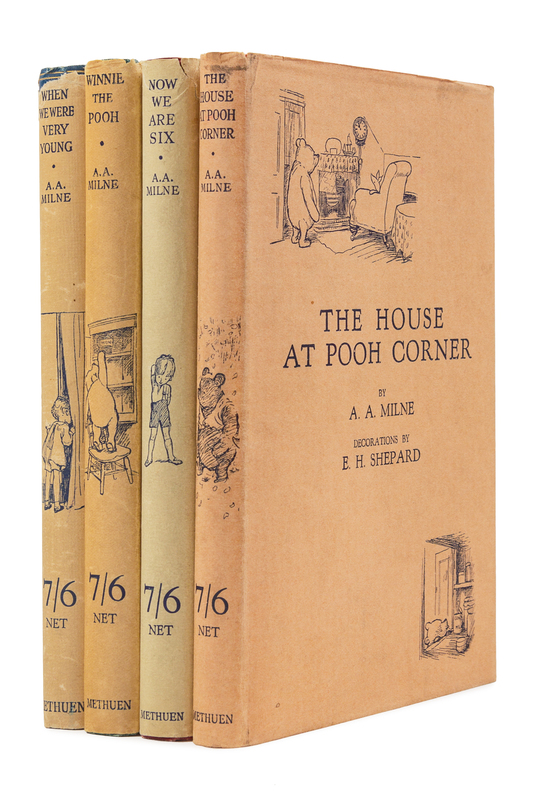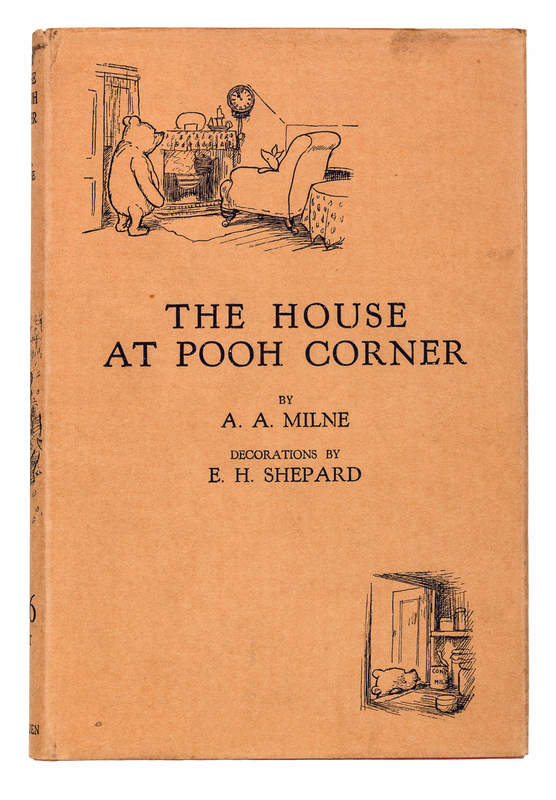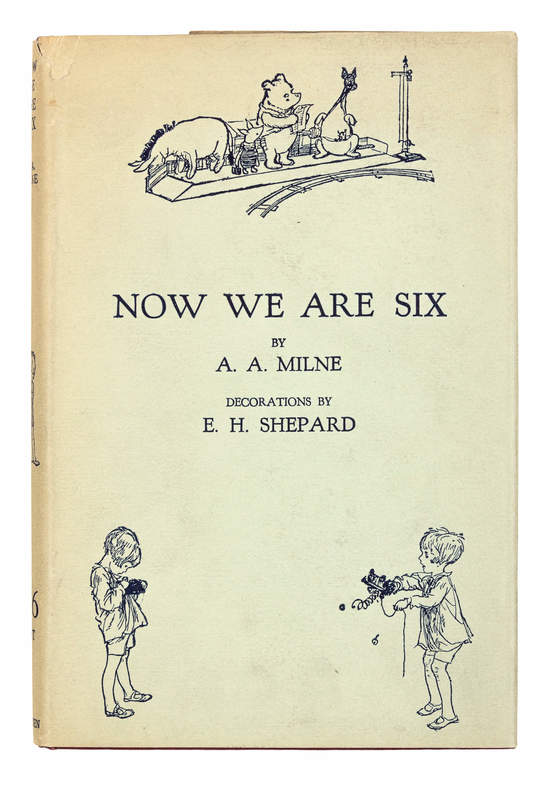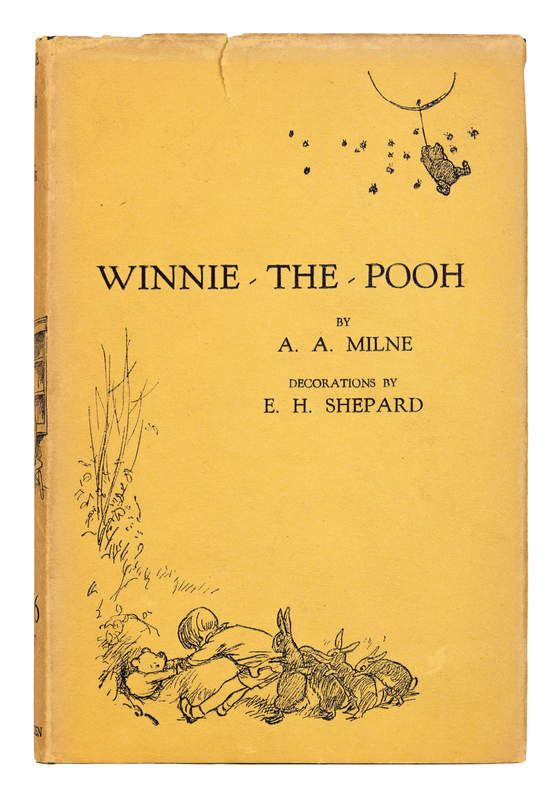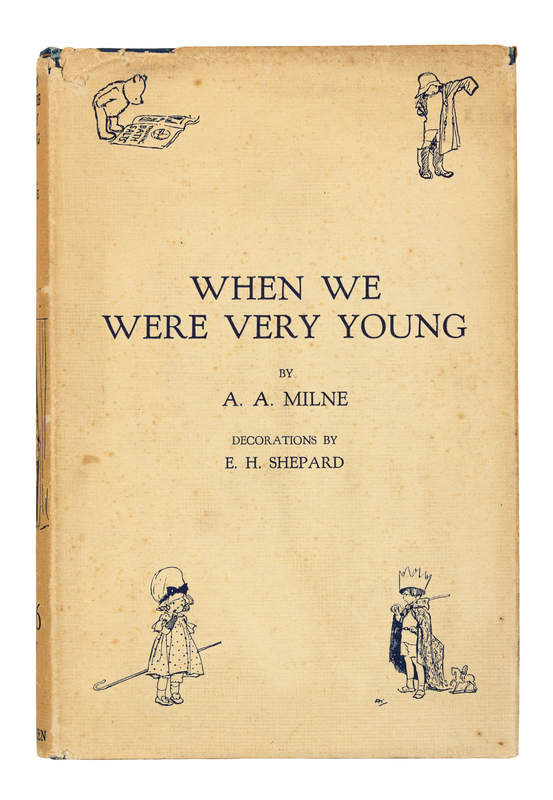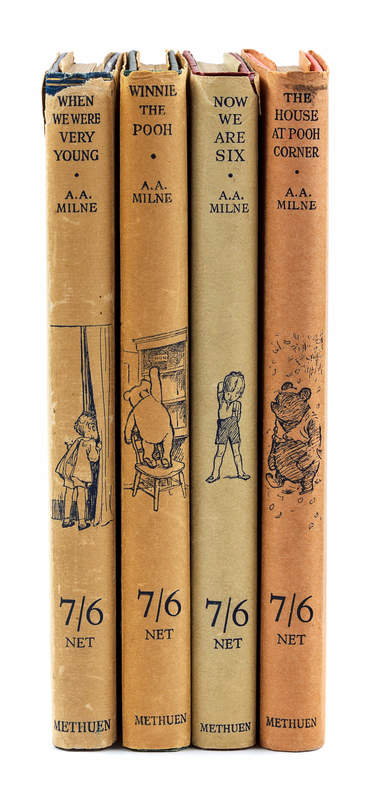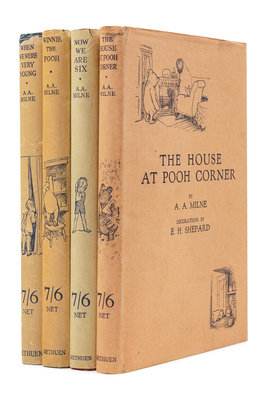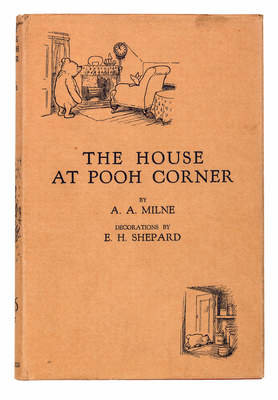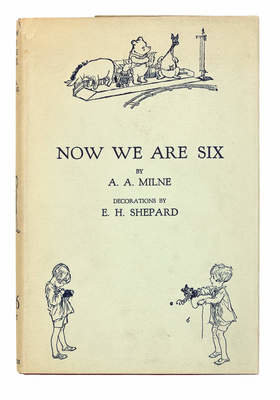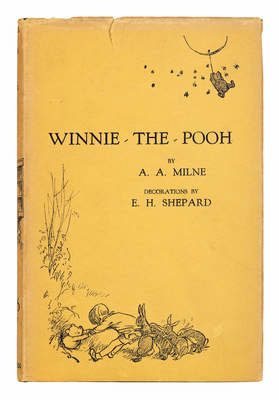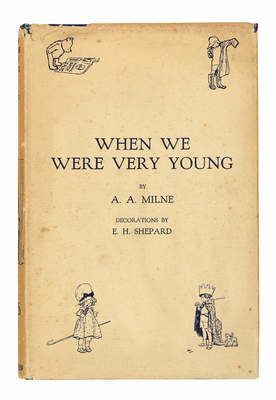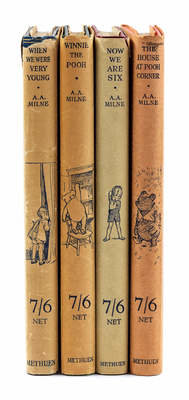Condition Report
Contact Information
Auction Specialist
Lot 59
MILNE, Alan Alexander (1882-1956). When We Were Very Young. London: Methuen & Co., 1924. -- Winnie-the-Pooh. London: Methuen & Co., 1926. -- Now We are Six. London: Methuen & Co., 1927. -- The House at Pooh Corner. London: Methuen & Co., 1928. FIRST EDITIONS.
Sale 714 - Library of a Midwestern Collector
Nov 5, 2019
10:00AM CT
Live / Chicago
Own a similar item?
Estimate
$5,000 -
7,000
Price Realized
$10,625
Sold prices are inclusive of Buyer’s Premium
Lot Description
MILNE, Alan Alexander (1882-1956). When We Were Very Young. London: Methuen & Co., 1924. -- Winnie-the-Pooh. London: Methuen & Co., 1926. -- Now We are Six. London: Methuen & Co., 1927. -- The House at Pooh Corner. London: Methuen & Co., 1928.
Together 4 volumes, 8vo. Illustrated by Ernest Shephard. Original gilt-decorated cloth, top edges gilt (slightest rubbing to spine extremities, endpapers lightly discolored); each in original pictorial dust jacket (When We Were Very Young with minor chipping at ends of spine panel, some soiling and minor edgewear, Winnie-the-Pooh with small semicircular stain on rear panel and short tear on front panel, Now We are Six with slight wear at head of spine panel and few stray marks); housed together in quarter morocco cloth slipcase. Provenance: Frank A. de Rougeont (bookplate in When We Were Very Young).
FIRST EDITIONS OF THE CHRISTOPHER ROBIN BOOKS. When We Were Very Young is a second issue (as usual) with page ix numbered. Milne began the poems in When We Were Very Young for his son Christopher Robin. They had originally appeared in Punch magazine and, to the shock of Milne and Methuen, the book sold out on publication day. It was an unqualified success, quoted, recited, and parodied everywhere. Milne based the stories of his second major book Winnie-the-Pooh on a set of stuffed animals Christopher Robin (called "Billy Moon" in the family) owned. Methuen published Milne's third children's book just two months after Winnie-the-Pooh. The House at Pooh Corner would be the last of the Pooh books. Milne wanted both to stop while the books were selling well--"I have had my thrill out of children's books, and know that I shall never recapture it"--and to protect his growing son: "I feel that the legal Christopher Robin has already had more publicity than I want for him. Moreover, since he is growing up, he will soon feel that he has had more publicity than he wants for himself. We all, young and old, hope to make some sort of name, but we want to make it in our own chosen way, and, if possible, by our own exertions" (Thwaite, pp. 338-39). Grolier, One Hundred Books Famous in Children’s Literature 71.
